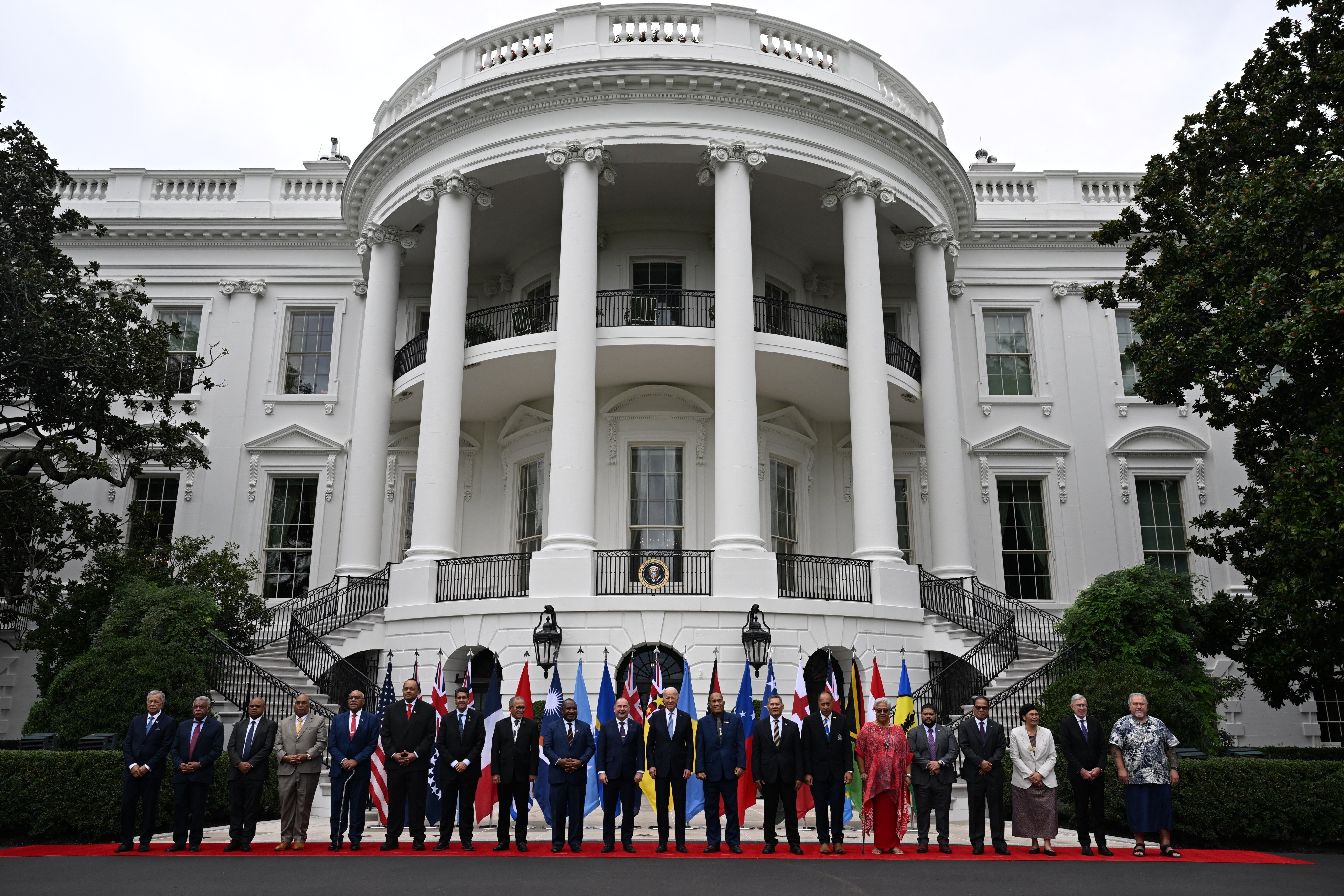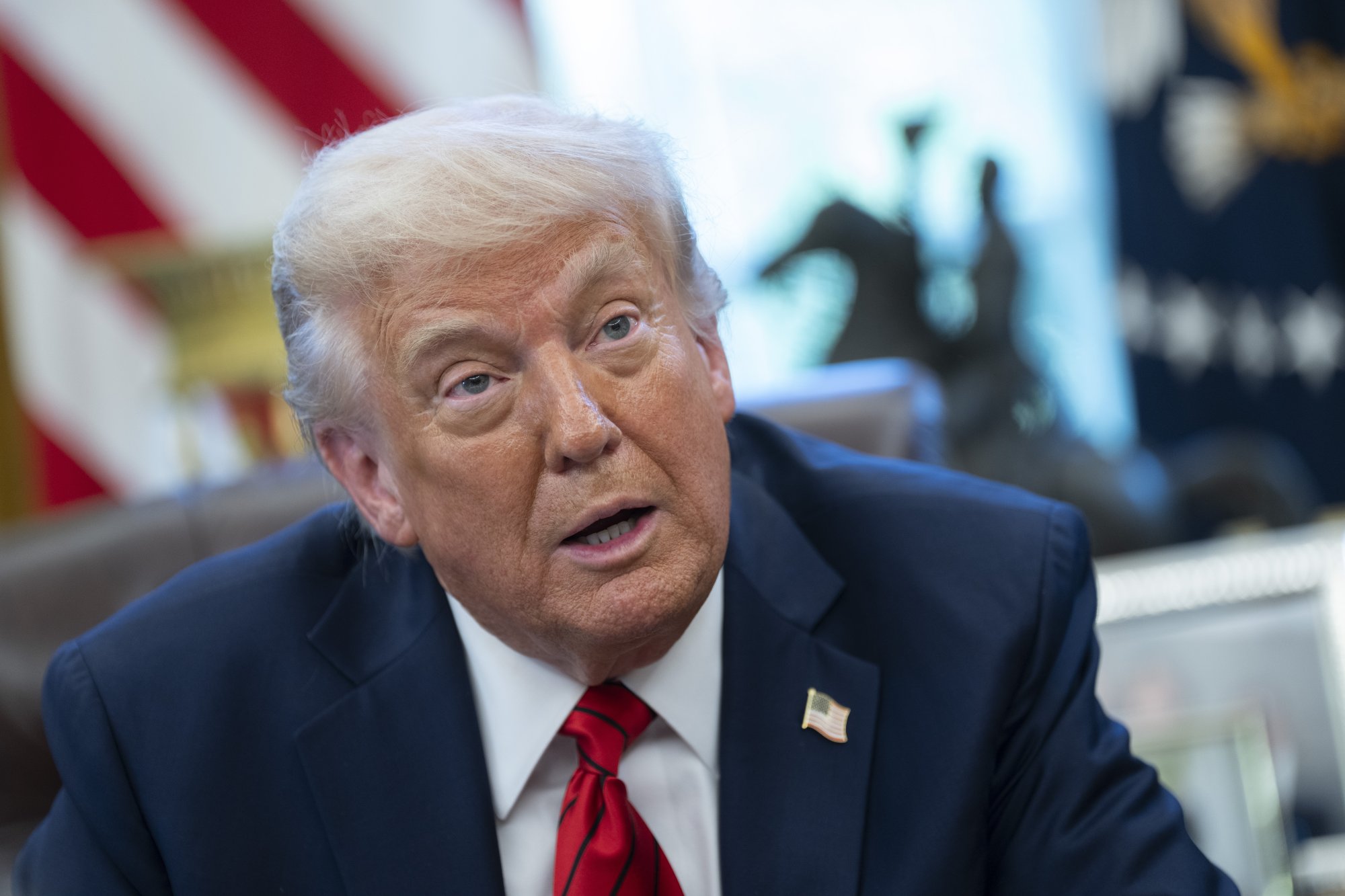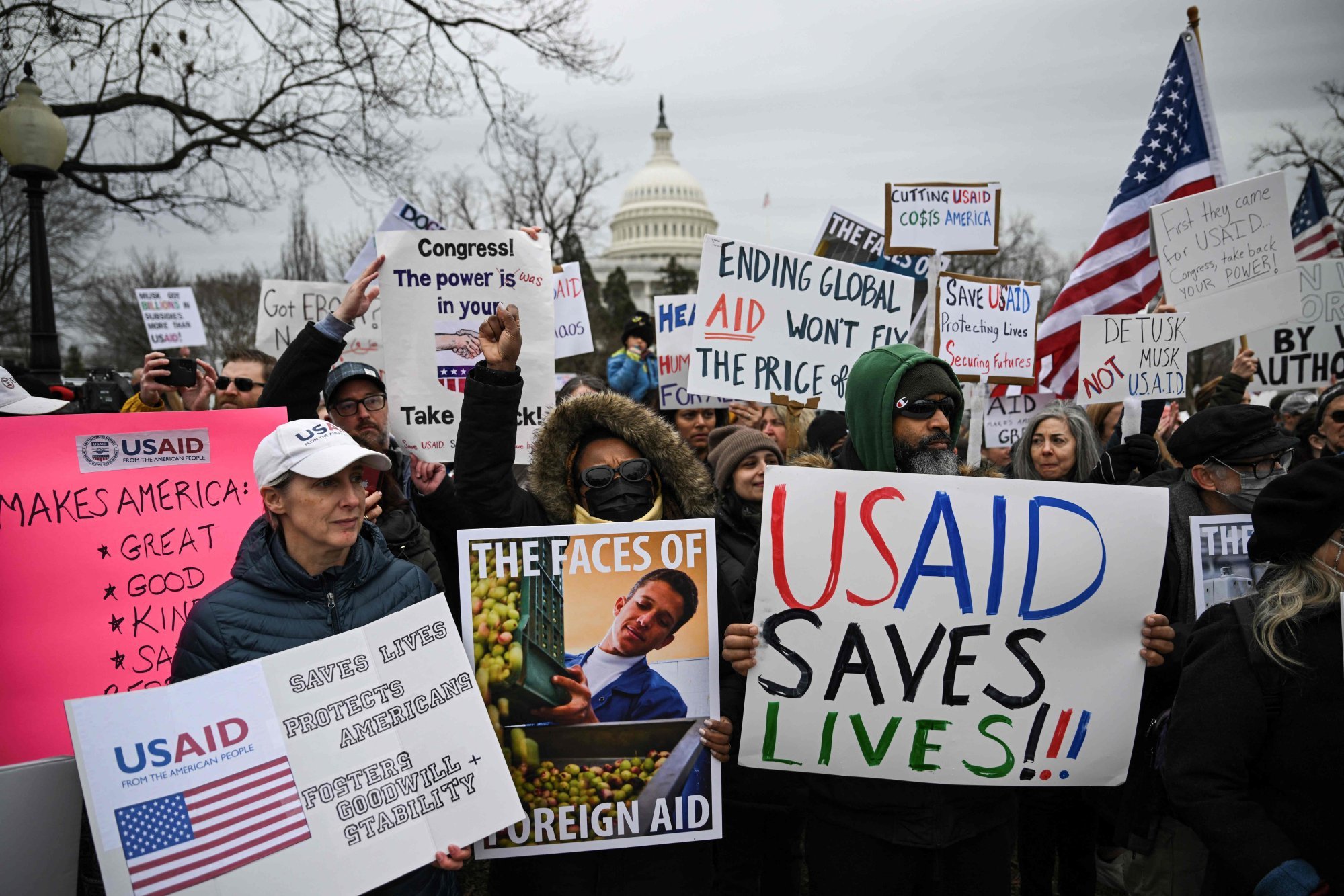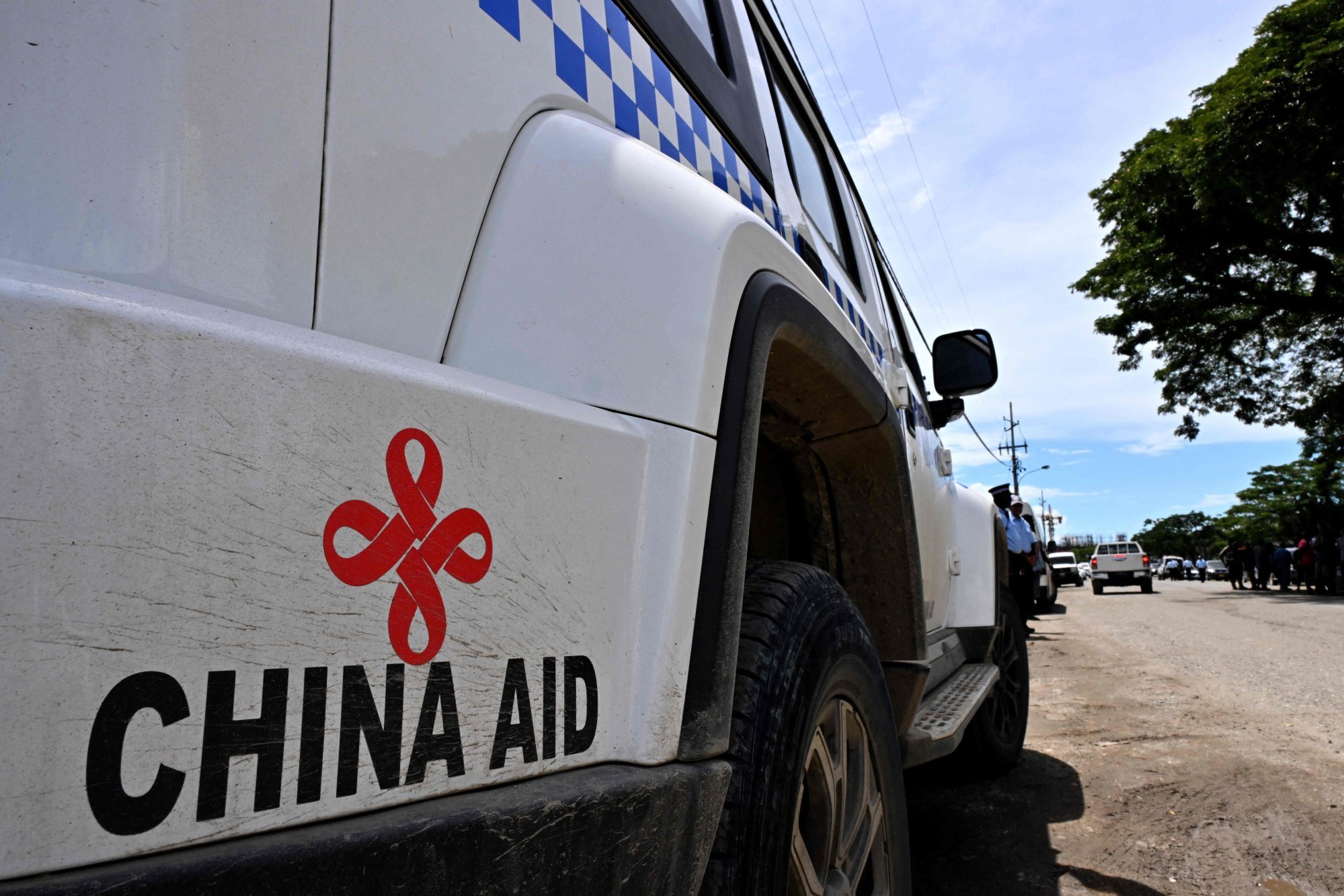Pacific island nations see a US pullback – will China step up?
The Pacific Islands Forum wants answers from Washington over its unmet financial pledges to the region, including US$200 million in funding

Trust in the United States’ commitment to Pacific island nations – and its influence in the region – risks further erosion as Washington faces scrutiny over its failure to deliver on financial pledges.
Last month, leaders of the Pacific Islands Forum (PIF) sent a letter to the Trump administration, voicing concerns about what they described as a widening gap between American promises and actual delivery.
Among the unfulfilled commitments is US$200 million in new funding announced in 2023, according to Collin Beck, permanent secretary at the Solomon Islands’ Foreign Affairs Ministry, who spoke to New Zealand media on April 22.
The region’s leaders are seeking direct discussions with Washington to resolve these issues, alongside grievances over US President Donald Trump’s import tariffs and millions of dollars reportedly owed for tuna-fishing rights in Pacific waters.

The PIF, which comprises 18 countries and territories, works to foster cooperation on issues from economic development to climate change. But its trust in Washington has been tested.
The fissures deepened earlier this year when US Agency for International Development (USAID) funding was frozen in February, jeopardising Pacific programmes covering healthcare, governance and women’s economic empowerment.
The US has historically been a major Pacific partner – ranking as the region’s fifth-largest donor over the past decade, behind Australia, China, Japan and New Zealand. In 2023, Washington reopened its embassy in the Solomon Islands after a 30-year hiatus and established a diplomatic presence in Tonga, but those gestures have been undermined by other actions since Trump took office.
On the trade front, nations like Papua New Guinea and Tonga face the baseline 10 per cent tariff Washington imposed on all countries last month, while Vanuatu, Nauru and Fiji have been slapped with levies of 22, 30 and 32 per cent, respectively, which are set to take effect from July.
Gaps between US commitments and actual delivery have shaped American engagement for decadesSolstice Middleby, former Australian diplomat
“Gaps between US commitments and actual delivery have shaped American engagement for decades,” said Solstice Middleby, a former Australian diplomat to the Pacific and a PhD candidate in Pacific regionalism at the University of Adelaide.
The decision by Pacific leaders to write to the Trump administration reflected their determination to hold Washington accountable, Middleby said.
“However, based on historical patterns, Washington is likely to offer affirming language while continuing to focus on its own strategic and commercial interests,” she said.
“Pacific leaders are likely to continue to engage pragmatically with the US, asserting Pacific-led priorities rather than relying on unpredictable external partnerships.”
Middleby added that while some uncertainty was normal in the early days of any US administration, Trump’s actions – from tariffs to aid cuts and a push for offshore resource exploitation – “point to a deeper and more worrying trend for the Pacific”.
Resource tensions
Recent executive orders targeting offshore fisheries and critical minerals were a sign of Washington’s intent to step up extraction activities, Middleby said.
On April 17, Trump issued an order to “unleash American commercial fishing in the Pacific”, removing key protections for nearly 1.3 million sq km (500,000 square miles) of a marine protected area. Critics warn the move threatens the region’s biodiversity.
Middleby advised that the PIF should assert sovereignty over its resources and deepen partnerships beyond traditional donors in response.
Anne-Marie Schleich, a retired German envoy to the region, noted a small recent victory for Pacific nations: after high-level talks, PIF officials succeeded in reinstating US$9 million in funding for the Pacific Resilience Facility, which aims to mitigate climate and disaster risks.
Pacific leaders have also sought long-term support for the facility from the International Monetary Fund and the World Bank, said Schleich, who is now an adjunct senior fellow at the S Rajaratnam School of International Studies in Singapore.
US-Pacific relations had improved during former president Joe Biden’s tenure, with trust gradually rebuilt, she said. But much of that progress has been unravelled by Trump’s approach, which has spanned trade turmoil, aid cuts, withdrawal from the Paris Agreement on climate change and pro-fossil fuel policies.
Schleich said the region had become more pragmatic and now had more options.
“Geopolitical wrangling has also led to other donors stepping in. China will certainly try to step into this vacuum,” she said.

Great power competition had opened opportunities for Pacific leaders to advance key issues such as climate change and infrastructure investment, Schleich argued. “No doubt they will use it over the next four years,” she said.
Charles Hawksley, an associate professor of politics and international studies at the University of Wollongong, said the US Congress had previously supported increased aid to the Pacific, but such an outcome now seems unlikely.
“My feeling is that the Trump administration is very much focused on politics within the continental US, and it does not have a strong sense of how soft power can work globally,” Hawksley said.
For Pacific nations, trade, economic development and food security remain vital, with climate change topping the list of challenges. These countries are among the most vulnerable to rising sea levels, shifting rainfall patterns and higher temperatures, according to Australia’s national science agency, CSIRO.

Squandering influence
Moses Sakai, a research fellow at Papua New Guinea’s National Research Institute, emphasised the need for Pacific nations to bolster intraregional cooperation, with the coming PIF summit in Solomon Islands this September emerging as a priority.
He said the US must move beyond pledges to deliver tangible action on climate change and similar areas of cooperation.
Other nations have already demonstrated their willingness to step in. China, for instance, built facilities in Solomon Islands for the 2023 Pacific Games, strengthening its ties with the region. Over the past decade, Beijing has increased aid, diplomacy and security cooperation with Pacific nations.
“The PIF has shown it wants to engage with development partners who are serious about helping the Pacific islands,” Hawksley said. “They are learning to leverage donors to get what they need.”
He said the US risked losing its foothold in the region if it continued to prioritise short-term gains over long-term partnerships.
“The combination of tariffs and aid cuts may end up squandering what little influence the US has left in the Pacific,” Hawksley said.